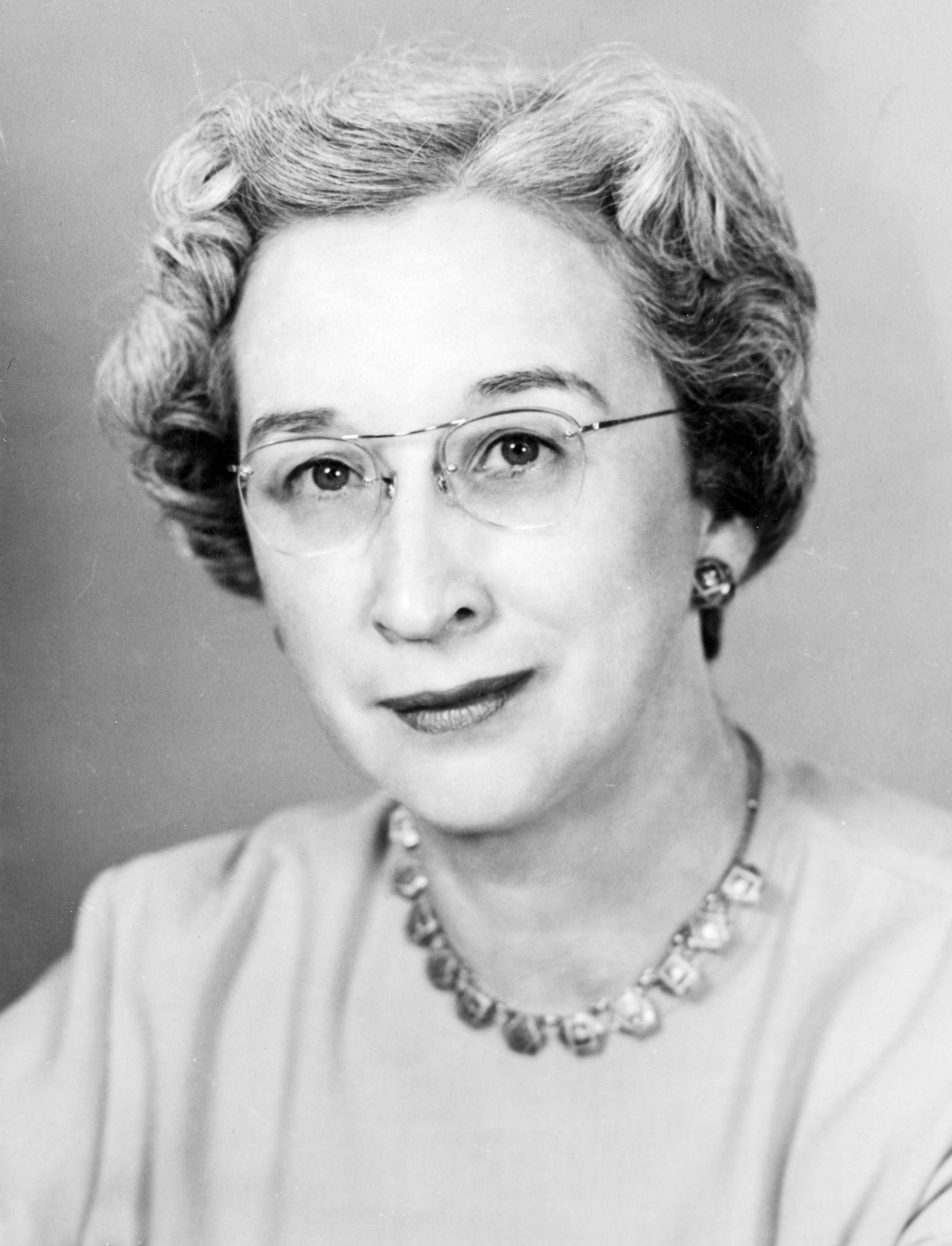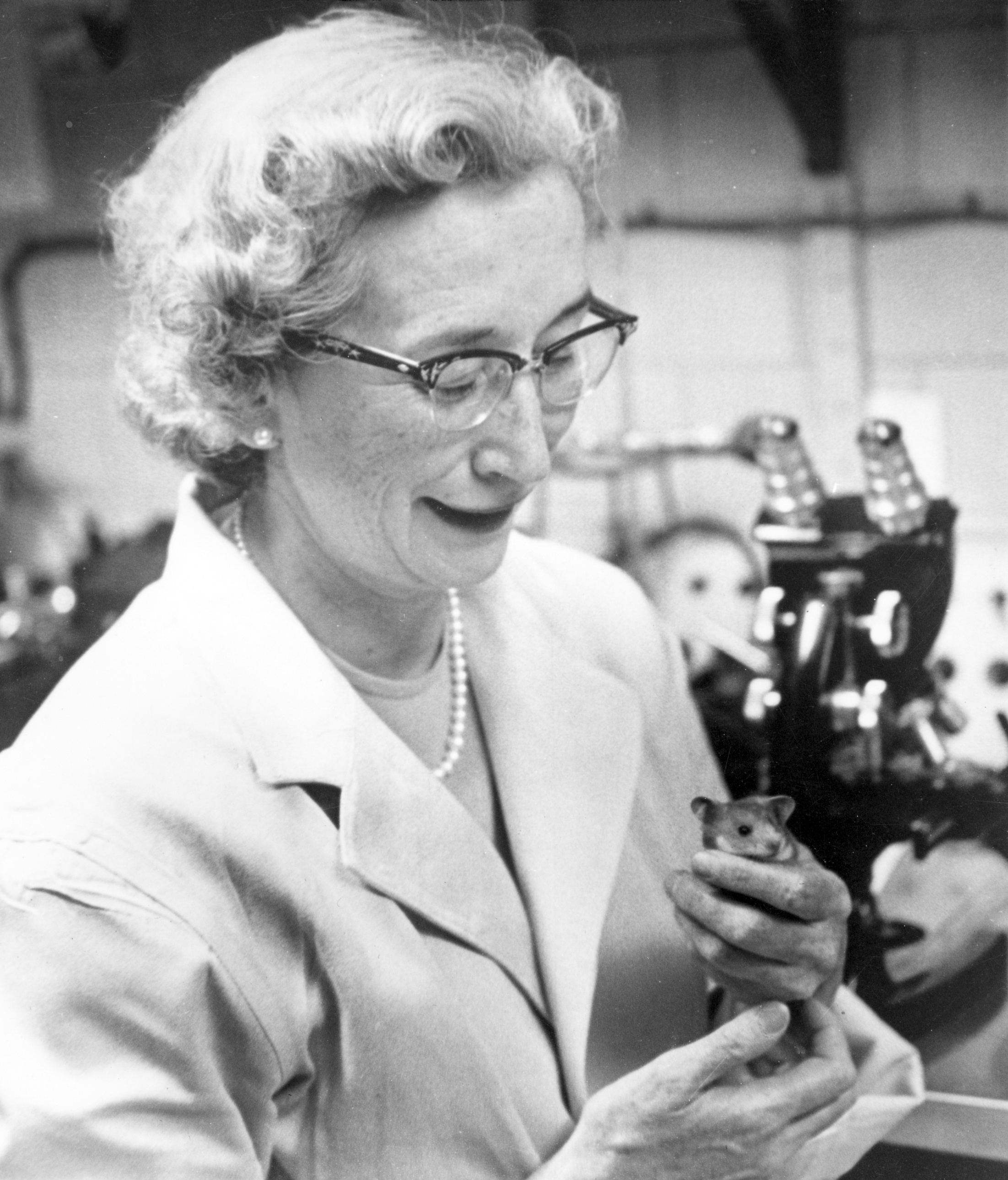Sarah Stewart, M.D., Ph.D. (1905-1976)
Sarah Stewart was born in Mexico to an American father and Mexican mother. She moved with her family back to the United States at age 5 and graduated from New Mexico State University in 1927.
Stewart earned her MS in microbiology from University of Massachusetts-Amherst in 1930 and her Ph.D. in microbiology from the University of Chicago in 1939. At the age of 43, she became the first woman to receive an M.D. from Georgetown University in 1949.
She worked at the National Institutes of Health (NIH) while also completing her Ph.D., but her request to study the link between viruses and cancer was denied. The National Cancer Institute (NCI) at the NIH cited a lack of education and experience with human research as the reason for their refusal to fund her. Until the 1960s, most scientists considered the idea of a cancer-causing virus to be preposterous. She left the NIH in 1944 to teach at Georgetown University School of Medicine. While teaching, she was able to take medical courses until she was able to officially enroll in medical school when Georgetown began accepting women in 1947.
New Mexico State University Hobson-Huntsinger University Archives (UA02040449)
NIH continued to deny Stewart’s funding to study cancer, so she took a temporary position in gynecology at a hospital in Staten Island to gain more experience. Finally, after she took an appointment in the United States Public Health Service (PHS) Commissioned Corps and a position at NCI in Baltimore, her request to study cancer was accepted. She returned to the NIH in 1951 to work at NCI, becoming the head of the Human Virus Studies Section in the Laboratory of Viral Oncology.
In 1956, she isolated the SE (Stewart-Eddy) polyoma virus with Dr. Bernice Eddy of the Division of Biologics Standards (DBS) Laboratory of Virology and Rickettsiology. The SE polyoma virus induces parotid gland tumors and a variety of other primary neoplasms in mice and other animals, which had implications for future viral oncology research. Without Stewart and Eddy’s persistent research into the ability of viruses to cause cancer, the human papillomavirus (HPV) vaccine would not exist today.
Dr. Sarah Stewart in the Laboratory New Mexico State University Hobson-Huntsinger University Archives (UA02040405)
Twice Stewart and Eddy were nominated for the Nobel Prize for their work on the SE polyoma virus, but they never won. Stewart did win several awards during her career including the Federal Woman’s Award presented by President Lyndon B. Johnson in 1965.
Stewart retired from the NIH in 1970 and died of cancer in 1976.
Stewart was employed at the NCI, so she was not assigned space in Buildings 29 or 29A.
Office of NIH History and Stetten Museum
Publications:
- “Characteristics of the SE polyoma virus” by Bernice Eddy and Sarah Stewart in the American Journal of Public Health (1959) https://www.ncbi.nlm.nih.gov/pmc/articles/PMC1373056/.
- “Tumor Induction by SE Polyoma Virus and the Inhibition of Tumors by Specific Neutralizing Antibodies” by Sarah E. Stewart and Bernice E. Eddy in the American Journal of Public Health (1959) https://www.ncbi.nlm.nih.gov/pmc/articles/PMC1373057/.
- “Dr. Sarah E. Stewart, Mexican-American Cancer Researcher” in New Mexico State University The Open Stacks Blog (2020). https://openstacks.nmsu.edu/sarah-stewart/.
- “The Woman Who Revealed the Missing Link Between Viruses and Cancer” in Smithsonian Magazine’s Women Who Shaped History Special Report (2019). https://www.smithsonianmag.com/science-nature/woman-who-revealed-missing-link-between-viruses-and-cancer-180972427/.




